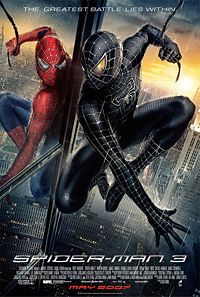Marginalized Media
I just realized that I had this draft of an almost-complete entry saved for more than a year now. (Looks like I started writing it in February ’08.)Â Seeing nothing particularly objectionable in it, I’ve filled in blanks (and only one with an anachronistic reference) and am hitting submit now:
Long time no post – my life’s been kind of deadline-to-deadline for a little while now, so I’m only just getting back to the world online, or at least only just getting back to contributing to the world online. Anyway, excuses, excuses…
Today’s NYT has an article about a new graphic novel, The Search, being used in schools in Germany to prompt discussion about the Holocaust, the Third Reich, and the lives it touched. It’s fascinating, and you should read it, but the reason it sparked a post from me is because of one quote:
“It would not have been possible as a history text 10 years ago, when people here assumed comics were only for those who couldn’t read properly,†Ms. Harms, from Reprodukt, the comics publisher, said.
I applaud Fraulein Harms’ sentiment, and I suppose it’s best in her line to state what should be true about comics as already being so, but the truth I’ve found is that comics are still, in many people’s minds, the bastard children of literature. Over Christmas 2006, as I was avidly tearing through the entire Sandman collection (for the first time ever, sadly), my father joked that he figured that after a certain point he assumed I’d be old enough to no longer need to read books with pictures. I didn’t know how to express to him that I couldn’t have read those particular books when I was younger, and that even had I read them five or ten years ago, I could not have gotten as much out of them as I do now. Yes it’s words and pictures, but there’s more there than a picture book. (There I go, marginalizing picture books – as if Dr. Seuss isn’t art.) I couldn’t really blame his misapprehension – most of his (and most people’s) exposure to comics is only as daily newspaper strips or pulp hero fiction with illustrations geared towards a younger audience. But like all media, comics are more than just entertainment – they are a forum for exploration, for edification, and for artistry. Of course I’m preaching to the choir here – I suspect almost everyone who reads this agrees that comics can be works of art and works of literature which are only enriched, not cheapened by the crossing of media.
But the popular marginalization of comics as an art form still exists, and it exists for other media forms. As my friend Darius observed earlier this month, musicals and video games have it hard, too – both are perceived to be “light” media, suitable for entertainment, not enlightenment or catharsis. In my personal experience, I’ve found that in America, Bollywood musicals definitely carry this stigma – intensified by the fact that many people who enjoy Bollywood movies (here and in India) enjoy then for the silliness and shun the deeper, heavier entries into the genre. People forget that for every Spiderman, there’s a Maus. For every South Pacific, there’s a Les Mis. For every Quake 3 there’s a Braid. More to the point, for every Godfather, there are a dozen mindless, explosion-filled popcorn movies, and for each To Kill a Mockingbird there are Harlequin romances and John Grisham novels, but this doesn’t make anybody think that movies and books are incapable of moving us in a way that is greater than the superficial.
Picture and word can both exalt the soul – why can’t they together? Music, speech and dance can each rend our hearts – why not all three? Story, sport, gameplay, and cinema can show us the very nature and rhythms of life, why shouldn’t their fusion?

